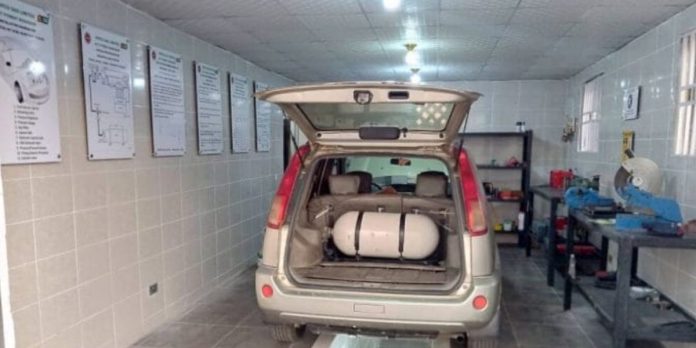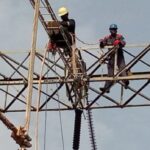Nigerians have raised safety concerns as the Malaysian government announced plans to phase out the use of compressed natural gas (CNG) for vehicles and end the sale of natural gas vehicles (NGV) in the country.
According to Free Malaysia Today (FMT), a local media organisation, Loke Siew Fook, minister of transport, announced the development at a press conference recently
In Malaysia, CNG is referred to as NGV.
Fook said CNG-powered vehicles can no longer be registered or be used in Malaysia from July 1, 2025.
He also said Petroliam Nasional Bhd (Petronas), a government-owned oil and gas company, will halt the sale of CNG at its stations in stages, starting on July 1, 2025.
The minister said with only about 44,383 NGVs currently in the country — accounting for 0.2 percent of vehicles in Malaysia, excluding motorcycles — the safety of road users and the public will be restored.
“The NGV tanks of these vehicles are now reaching the end of their service life and need to be replaced and NGV tanks typically have a safe usage period of 15 years,” Fook said.
He further said there are also some car owners who have modified their vehicles using liquefied petroleum gas (LPG) cylinders, which are very dangerous.
The minister said the vehicles had caused explosions during accidents.
Malaysia introduced the use of compressed natural gas in the late 1990s for taxicabs and airport limousines.
Fook said it is necessary to prevent the misuse of the vehicles or for any illegal modification to be carried out on them as it would endanger the public.
He said payments under the support package will be made within three to seven working days “of receiving a vehicle’s certificate of destruction and deregistration slip”.
‘Tinubu taking us back to 90s’
In contrast, the Nigerian government, led by President Bola Tinubu, has been promoting CNG vehicles as a safer and more cost-effective alternative to petrol.
In August 2023, Tinubu approved the establishment of the Presidential Compressed Natural Gas initiative to ease the impacts of fuel subsidy removal on citizens.
Many have also taken to social media to question the safety of adopting CNG vehicles, citing Malaysia’s decision to phase them out.
Ini Ekott, tweeting on X.com as @iniekott, wrote on Thursday, “Meanwhile, Nigerian rulers are putting CNG forward as a safe alternative to petrol. Note the clear-headed and tangible provisions made by the Malaysian government to help citizens with the transition.”
Otunbakush1 wrote, “And here is Nigeria saying people should convert to CNG… Death Race.”
PaschalNwosu5 commented, “Malaysia introduced CNG in the 1990s; now they are stopping it in 2024, while Bola and his supporters are asking Nigerians to change to CNG. APC is taking you 34 years backwards, but some of you’re defending it.”
SmartAtuadi similarly wrote, “Yet, here in Nigeria, they want to decimate the population by their tacit promotion and coercive campaign for Nigerians to convert their vehicles to CNG.”
Oserume1 said, “If CNG was a good idea, Tinubu would have converted his official luxury Cadillac Escalade from petrol to CNG!”
PastorGreatKing wrote, “Basically, President Tinubu is telling Nigerians to buy CNG as a way of diverting our attention from constant fuel price increases. When cars start blowing up like missiles, we all run back to fuel, but then it’s too late to argue/protest about fuel prices.”
FG allays fear, says Malaysian conversion of less than 0.2% not enviable
The Presidency on Thursday allayed fears that the Compressed Natural Gas, CNG initiative of President Bola Tinubu’s government could be dangerous.
The media aide to President Tinubu, Bayo Onanuga said in a statement on Thursday that the Malaysian issue is different.
He said the concern raised by the Malaysian government speaks more to the safety of Liquefied Petroleum Gas, LPG and not the safety of CNG.
According to Onanuga, “NGV covers both CNG and LPG. Nigeria in its transition has adopted CNG ONLY not both because of LPG’s valid safety and cost concerns
“Malaysia basically had an unsuccessful transition away from costly and dirtier petrol and diesel. Conversion of 45,000 vehicles in 15 years (less than 0.2%) is not enviable unlike India, China, Iran and Egypt.
“The end of 15 year CNG tank cycle means they need to replace tanks and it was easier/cheaper to scrap their program and continue with their petrol than to do so if they had not built tank manufacturing capacity which Nigeria is already developing in year one”.


